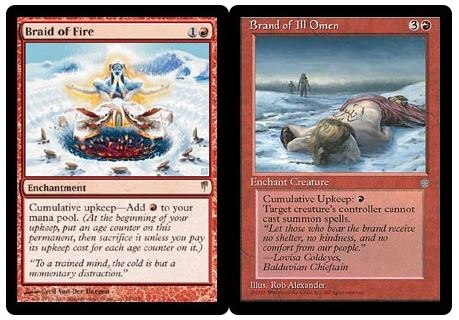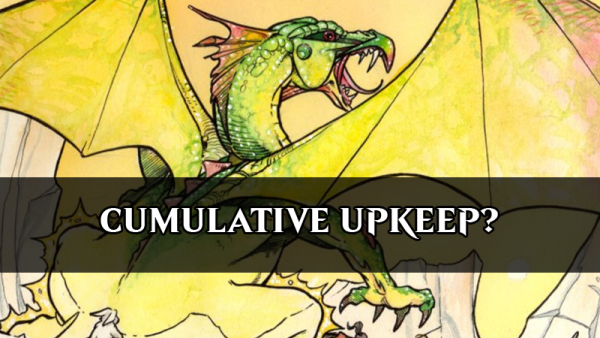Bringing back old, unused mechanics is a bit of a risk -- especially when they weren't all that popular to begin with.
Bringing back old, unused mechanics is a bit of a risk -- especially when they weren't all that popular to begin with.
One of those is cumulative upkeep. Essentially, it's a negative mechanic that makes a card progressively more and more expensive to keep on the board.
The mechanic was introduced in Ice Age and saw appearances here and there for a little while in the next few sets that followed. Then, it basically disappeared.
Now, let's go forward a decade to the year 2006. Wizards of the Coast released Coldsnap, a third and final set for the Ice Age block. To fit in with the block's theme and mechanics, WotC went a bit retro and brought back cumulative upkeep (though they did clean up some of the rules for it, adding age counters to better keep track of things).
So, continuity aside, why bring back such a disliked mechanic?
In part, it was the developers fault. Design on Coldsnap was the shortest ever, clocking in at only six weeks. So it didn't really help things that design wasn't really all there for a big part of the time, nor was it good that they didn't spend enough time on all the mechanics.
Now, let's look at the Coldsnap card Braid of Fire. Like many other cards in the set, it has cumulative upkeep. The upkeep, however, doesn't make its controller pay anything. Rather, it GIVES you mana. Which sounds like a good thing until you take into account mana burn (unused mana used to damage players at the end of each phase). With mana burn not a thing in the core rules anymore, though, Braid of Fire could be considered nothing but a plus -- especially when combo'd with cards like the Ice Age original Brand of Ill Omen.

Cumulative upkeep hasn't been seen since 2006 outside of a few odd things like a reprint in a Secret Lair Drop or special set like Dominaria Remastered (looking at you, Mystic Remora) and it's unlikely the game will ever see it again, but, then again, who knows?









